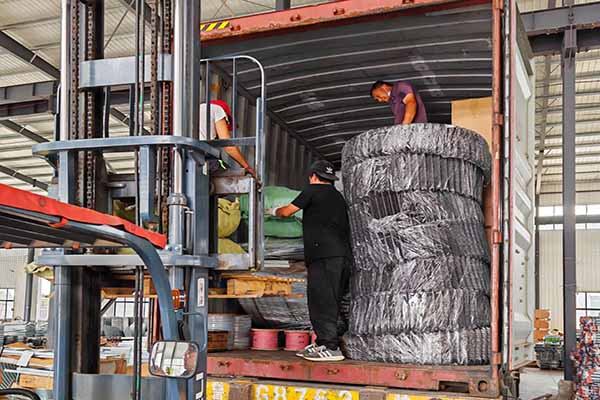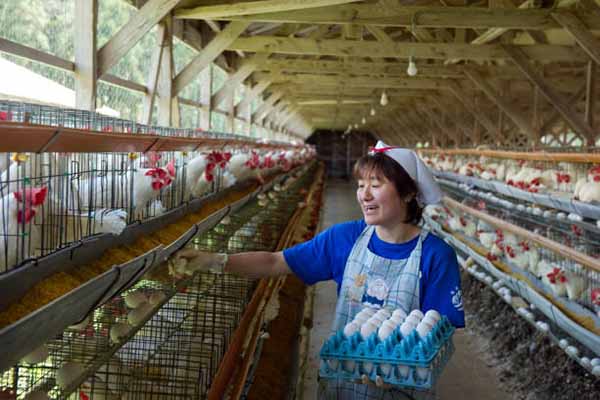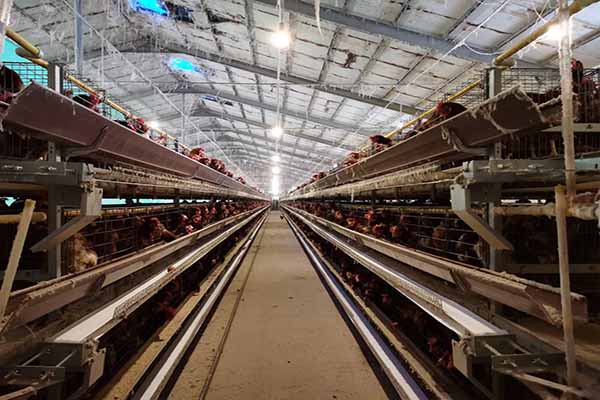Export Tariffs for Chicken Farming Equipment in Tanzania: What You Need to Know
Time : 2025-04-26
Are you planning to export chicken farming equipment to Tanzania? If so, understanding the export tariffs is crucial for a successful venture. In this article, we’ll delve into the export tariffs for chicken farming equipment in Tanzania, providing you with all the necessary information to make informed decisions.

Introduction to Export Tariffs in Tanzania
Export tariffs are taxes imposed on goods and services that are exported from one country to another. Tanzania, like many other countries, has specific tariffs in place for various products, including chicken farming equipment. These tariffs are determined by the Tanzania Revenue Authority (TRA) and can vary based on the type of equipment and its value.

Types of Chicken Farming Equipment Subject to Export Tariffs
When exporting chicken farming equipment to Tanzania, it’s important to know which items are subject to tariffs. Common categories include:
- Chicken Coops and Enclosures
- Feeding Systems
- Watering Systems
- Fertilizer Spreaders
- Egg Collection Equipment
- Heating and Ventilation Systems
Current Export Tariffs for Chicken Farming Equipment
As of the latest information available, the following export tariffs apply to chicken farming equipment in Tanzania:
| Equipment Type | Export Tariff Rate (%) |
|---|---|
| Chicken Coops and Enclosures | 5 |
| Feeding Systems | 10 |
| Watering Systems | 5 |
| Fertilizer Spreaders | 10 |
| Egg Collection Equipment | 5 |
| Heating and Ventilation Systems | 10 |
It’s important to note that these rates are subject to change, so it’s always a good idea to consult the latest regulations or a customs broker before making any export decisions.
Factors Influencing Export Tariffs
Several factors can influence the export tariffs for chicken farming equipment in Tanzania:
- Global Market Conditions: Changes in global demand and supply can affect the prices and tariffs.
- Local Industry Development: The government may adjust tariffs to support local industries or to encourage imports of specific technologies.
- Trade Agreements: Tanzania’s trade agreements with other countries can also impact the tariffs.
Import Procedures and Documentation
When exporting chicken farming equipment to Tanzania, you’ll need to follow certain import procedures and provide the necessary documentation. Here’s a quick rundown:
- Export Declaration: Complete an export declaration form with details of the equipment and its value.
- Bill of Lading: Obtain a bill of lading from the shipping company to prove ownership and shipment of the goods.
- Customs Clearance: Pay the required tariffs and any additional fees and ensure that the goods pass customs inspection.
- Import License: Some equipment may require an import license, depending on its type and purpose.
Benefits of Exporting Chicken Farming Equipment to Tanzania
Exporting chicken farming equipment to Tanzania can offer several benefits:
- Market Opportunities: Tanzania’s growing poultry industry presents a significant market opportunity.
- Support Local Agriculture: By providing modern equipment, you can help improve local chicken farming practices.
- Economic Growth: Exporting can contribute to the country’s economic growth and development.
Conclusion
Exporting chicken farming equipment to Tanzania can be a lucrative business venture, but it’s crucial to understand the export tariffs and comply with the necessary procedures. By staying informed about the latest tariffs, import requirements, and market conditions, you can make well-informed decisions and successfully enter the Tanzanian market.
Remember to always consult with customs brokers, legal experts, and the Tanzania Revenue Authority for the most up-to-date information and guidance.

Tags:, , , ,











